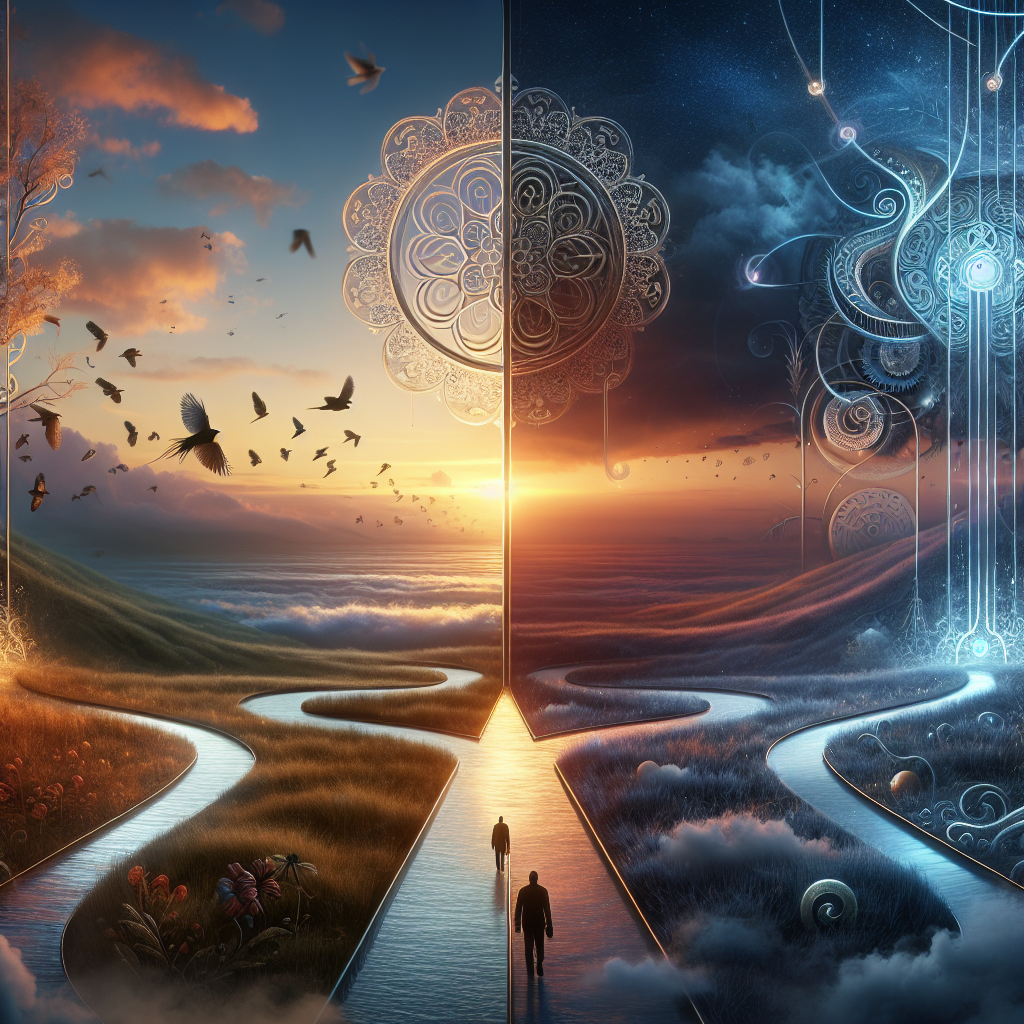
The philosophical debate between free will and determinism is a timeless controversy that has shaped human understanding of life, morality and decision-making. This dichotomy challenges our perceptions of agency, raising profound questions about our role in the tapestry of existence and the extent to which we control our own fates.
In a bustling café at the heart of the city, two individuals sat across from each other, their steaming coffees forgotten in the heat of their conversation. One was a firm believer in free will, while the other was a staunch determinist. Their spirited debate was a microcosm of a philosophical conflict that dates back to ancient times. The advocate of free will began, 'We are the architects of our own fate.
Our decisions, though influenced by our surroundings, are ultimately ours to make.' He believed in the power of choice and the capacity of humans to shape their destinities. The determinist countered, 'But every choice we make is shaped by a complex web of causal factors. Our genes, upbringing, and environment dictate our predispositions and responses.' He emphasized that our actions are merely the inevitable outcomes of preceding events. The free will proponent argued back, 'But if our actions are predestined, how can we be held morally responsible for them?' He drew an ethical implication from the debate, suggesting that determinism could undermine the very notion of morality.
The determinist, however, had a different perspective. 'Determinism doesn’t absolve us of responsibility. It rather provides a deeper understanding of our actions. It helps us see that a 'bad' person is a product of unfortunate circumstances rather than inherently evil.'
As the conversation deepened, so did the complexity of their arguments.
The determinist proposed that embracing determinism could lead to compassion and understanding, while the free will proponent warned of the potential for complacency and fatalism. In the end, neither could convince the other. They left the café with their beliefs intact, but with a heightened respect for the opposing viewpoint. Their conversation served as a reminder that philosophy is not about winning debates, but about exploring the profound questions of existence.
The dance between free will and determinism continues, as it has for centuries. It is a dance that explores the depth of human existence, inviting us to ponder the essence of our actions, the nature of morality, and the mystery of life itself.












































